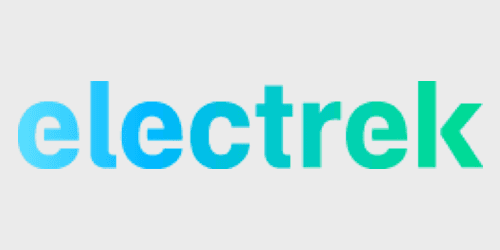
In today’s Electrek Green Energy Brief (EGEB):
- Bighorn Solar is now powering a Colorado steel mill almost entirely with solar.
- sonnen and Rocky Mountain Power pioneer a new battery storage and solar program.
- Shell’s solar platform Silicon Ranch acquires Clearloop.
- UnderstandSolar is a free service that links you to top-rated solar installers in your region for personalized solar estimates. Tesla now offers price matching, so it’s important to shop for the best quotes. Click here to learn more and get your quotes. — *ad.
Solar-powered steel factory
Pueblo, Colorado, is now home to the world’s first steel mill running almost completely on solar energy. The Bighorn Solar project was launched yesterday by solar developer Lightsource BP, utility Xcel Energy, and steel company EVRAZ North America.
The project is primarily located on 1,800 acres of land on EVRAZ Rocky Mountain Steel property. It’s the largest onsite solar facility in the US dedicated to a single customer, with more than 750,000 solar panels that are bifacial solar photovoltaic modules on single-axis trackers. The steel mill supports more than 1,000 jobs.
The solar panels will produce 613,400 megawatt-hours of electricity per year, offsetting about 90% of the steel mill’s annual electricity demand. (We’re assuming that the other 10% of energy comes from coal, seeing how the solar power is routed to the Comanche coal-fired power plant run by Xcel Energy on its way to the steel mill. Comanche will be shut down in 2040.)
Lightsource bp financed, owns, and operates Bighorn Solar and sells the electricity it generates to Xcel Energy under a 20-year power purchase agreement. As part of that arrangement, EVRAZ will receive clean power and price certainty from Xcel Energy through 2041.
The project is the equivalent of taking 92,100 gas cars off the road annually.
Pioneering solar and storage program
German home energy storage company sonnen and Rocky Mountain Power (RMP), an electricity provider in Utah, Wyoming, and Idaho, have been collaborating with Utah solar contractor ES Solar on virtual power plants that benefit both residents – clean backup power, energy management, and lower energy costs – and the local grid – load shifting, peak period offsets, and reduced reliance on fossil fuels. It’s known as the Wattsmart Battery Program. A 600-unit pilot project at Soleil Lofts Apartments in Herriman, Utah, is successfully up and running.
It’s a first-of-its-kind utility battery program model. RMP hopes it will challenge the traditional rooftop solar contractor model and demonstrate how utilities can go beyond net-metering approaches to implement dispatchable behind-the-meter resources to benefit customers and its grid.
Now sonnen and RMP have today announced that they will retrofit thousands of solar homes with battery storage units over the next year. RMP will have access to participants’ sonnen systems for dispatch and grid support services. ES Solar is already making installations, and the program is open to RMP’s 50,000 existing solar customers.
Silicon Ranch and Clearloop
Silicon Ranch Corporation, Shell’s US solar platform and one of the country’s largest independent power producers, has acquired clean tech pioneer Clearloop.
Clearloop partners with brands, companies, and individuals to expand access to clean energy and generate long-term opportunities in economically distressed communities across the US. Former governor Phil Bredesen (D-TN) is one of the company founders.
Clearloop will continue to operate under its brand and be led by CEO and cofounder Laura Zapata. Both companies are based in Nashville and will share office space at Silicon Ranch’s headquarters. Terms of the deal were not disclosed.
On September 1, Electrek reported that Clearloop broke ground on a 1-megawatt solar farm in Jackson, Tennessee. Clearloop said that it’s the first utility-scale solar farm in the US that is 100% financed by corporate carbon offsets.
Silicon Ranch’s acquisition of Clearloop is a notable break from traditional carbon offset practice. Typically, stakes in offsets from clean energy production have been sold to corporations via third parties such as carbon registry brokers. This use of middlemen often clouds the source of the offset credit and gives the buyer little to no tangible evidence of impact.
Photo: Lightsource BP
FTC: We use income earning auto affiliate links. More.




Comments